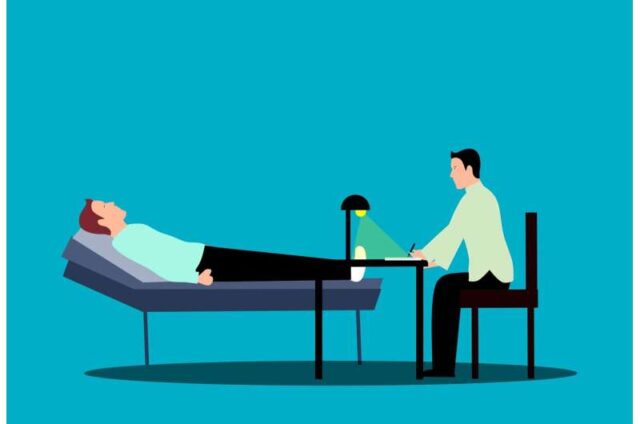Short Term Therapy: Weeks, Not Years
I see a range of clients who experience suffering from anxiety, depression, trauma, grief, attachment and relationship difficulty, or life changes. I have treated other psychotherapists and worked with mental health community providers who serve on the front lines in their communities. I have treated first responders, medical staff, and prison staff. I have treated very young babies fresh out of the NICU, to the more mature. The common thread of treatment is that I typically see clients for their initial concern for 3-6 months, not longer. That is 12-24 weeks. Not years.
Some people delay or avoid psychotherapy because there is a myth that once you start therapy, you are in it for life. It becomes one more task that is required for your health, and it never ends. This is a myth and is simply false. The vast majority of people who benefit from psychotherapy will have reached their goals within 3-6 months, when they find a psychotherapist who uses evidence-based practices. For a small minority of clients who have chronic, long-term, or very severe conditions, they find that life just works better when they stay in therapy and it helps to reduce relapse or being re-hospitalized for a mental health condition. Chronic, recurrent major depressive disorder may be such a situation where a person realizes that a weekly check-in and therapy service keeps depressive symptoms managed. A person who has been struggling with substance abuse for years and is seeking sobriety support is another example where long term therapy may be appropriate. There are others who realize how much better life is after reaching their initial goals that they set new goals and choose to continue therapy for another brief set.
Evidence-based treatment means that certain models or techniques have been supported by rigorous research which shows they are safe and effective for specific short term therapy concerns. By using evidence-based treatments, psychotherapists can offer specific treatments that have been researched and shown to work within a certain time frame for most people.
An example is considering treatment of posttraumatic stress disorder, known as PTSD. PTSD occurs following an experienced or witnessed trauma or life threatening event. It can have debilitating symptoms including flashbacks, nightmares, intrusive thoughts, and can disrupt relationships and the ability to work. The American Psychological Association, known as the APA, reports that 50 percent of clients treated for PTSD using psychotherapy have completed treatment within 15-20 sessions (2018). The APA also notes that several treatments have been shown to be faster and complete treatment within 12-16 sessions. At times, it may be preferred to continue psychotherapy for 20-30 sessions (approximately 6 months) to manage some of the life changes and gain confidence in using skills to maintain gains.
An interesting study by Marcus, Marquis, and Sakai (1997) randomized participants with PTSD to receive either EMDR (Eye Movement Desensitization and Reprocessing) treatment or standard psychotherapy. They found that the EMDR group experienced a significant reduction of PTSD symptoms much quicker than the standard care group; significant reduction of symptoms was measured after only 3 EMDR sessions. Their work also demonstrated that those who received EMDR required fewer medications and fewer ongoing psychotherapy sessions. In short, the EMDR group got a lot better faster than the traditional care approach to treat PTSD.
If you have been putting off seeking treatment in fear that once you start therapy you will never to able to quit, here are a few helpful questions to ask when you consult with various psychotherapists:
Do you offer a complimentary consultation?
Do you offer brief or short term therapy options?
How long do you you typically treat clients?
Do you use evidence-based practices?
Are you certified in any evidence-based practices such as CBT or EMDR?
References
American Psychological Association. (2018). How long will it take for treatment to work?. Retrieved from: https://www.apa.org/ptsd-guideline/patients-and-families/length-treatment.aspx
Marcus, S. V., Marquis, p., & Sakai, C. (1997). Controlled study of treatment of PTSD using EMDR in an HMO setting. Psychotherapy: Theory, Research, Practice, Training, 34(3), 307-315.
About the Author
AnnMarie Nelson, LMFT 97177 offers in-person brief, short term psychotherapy options out of her private practice located in beautiful Mission Viejo, California, and distance options for those residing within California. She welcomes your call to her office at 949.445.0510.



